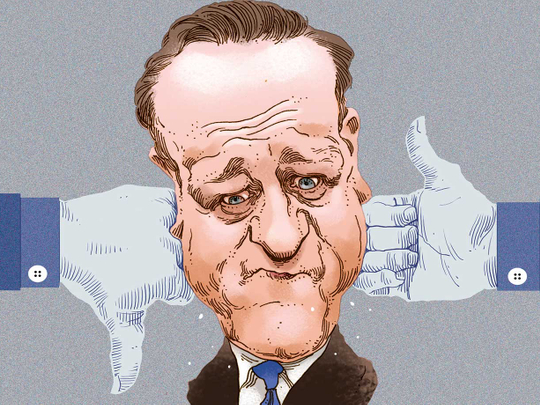
The Brexit debate moves up a gear this week with the Westminster Parliament proceeding with the final legislation needed to hold the European Union (EU) referendum on June 23. With some polls showing a tightening between the ‘in’ and ‘out’ sides, British Prime Minister David Cameron will also issue his strongest warnings yet on the dangers of the UK leaving Europe, asserting it would be the “gamble of the century”.
Since Cameron called the ‘in-out’ referendum last month, many tactics of the ‘in campaign’ have recalled the so-called “Project Fear” during the Scottish independence referendum in 2014. While ultimately successful in winning that vote, the pro-union campaign left a major headache that continues to this day. That is, a resurgent Scottish Nationalist Party (SNP) whose fortunes have been transformed after it ran a pro-independence campaign mixing positive with negative, and emotion with hard-headed logic, to energise the electorate. And this helped fuel the SNP’s subsequent landslide success in last May’s UK general election when it won 56 of 59 Scottish seats in the Westminster Parliament (up from only 6 seats in 2010), and the strong possibility this May of a majority government in the Scottish elections for the Edinburgh Parliament.
As in Scotland in 2014, there is a real danger now that the ‘in campaign’, including the prime minister, could lose a rancorous, close fought referendum by excessive focus on negative messages that seek to frighten, rather than inspire, voters into supporting continued European membership. Or, just as possible, they could win the battle (the June 23 ballot), but potentially lose the war (the subsequent battle to broaden support for the UK’s membership of the EU).
Those advocating Brexit have made much of the early running. Perhaps most significantly, London Mayor Boris Johnson, who is a clear second behind Cameron in polls showing which politician is most likely to influence the way people vote in the referendum, has decided to advocate ‘out’.
Central to the Brexit campaign is the emotionally charged vision that the UK can shape, in the words of Britain’s Justice Minister Michael Gove, “an optimistic, forward-looking and genuinely internationalist alternative to the [destructive] path the EU is going down ... Like the Americans who declared their independence and never looked back, we can become an exemplar of what an inclusive, open and innovative democracy can achieve”.
Meanwhile, the ‘in campaign’ has released a formidable barrage of endorsements from leaders in many walks of life, from big business to the military, making the case for continued EU membership. For instance, a letter was published signed by the chair or chief executive of about a third of the businesses in the FTSE 100 index of Britain’s largest stock market listed firms asserting that “we believe that leaving the EU would deter investment and threaten jobs. It would put the economy at risk”.
The problem with these otherwise powerful messages is not just that they are focused on potential negatives. Further, in an age of distrust of business, political and other establishment elites, narratives increasingly need to be carried by non-traditional messengers.
Cameron is right that leaving the EU would be a “leap in the dark”, but this message needs to be combined with a more uplifting, positive vision that seeks to enthuse about EU membership. And this needs a compelling forward offer too for why, for all our tomorrows, the UK electorate should vote for remain today.
It was former New York Governor, Mario Cuomo, who famously declared in 1985 that politicians “campaign in poetry but have to govern in prose”. Some 30 years later, the legendary Democrat’s maxim would be well heeded by those in the UK fighting to keep the territory in the EU.
European integration
Building upon the original rationale for European integration in the aftermath of the Second World War, the EU today is increasingly important to Britain’s prosperity beyond jobs and investment. From environmental protection, to international cooperation, and employment and consumer rights. And the scale of the 500 million population ‘club’ will help allow the UK to retain significant global influence in a 21st century that could be dominated by the rise of Asia, including India and China with populations over 1 billion each.
Aside from the big picture vision, the remain campaign also needs to challenge head-on the argument of pro-Brexit supporters that we are “run by Europe”. In fact, the UK enjoys a uniquely positive position in what is the world’s largest political and economic union. For instance, Britain has all the benefits of the single market, but is not part of the Eurozone; it has retained a budgetary rebate and ensured it cannot be outvoted by Eurozone countries against UK interests; and there is, broadly, free movement of people in Europe without Britain being part of the Schengen border-free area.
Referendum victory in June may yet be possible without a more optimistic vision for the future of Britain in Europe. However, in its absence, the aftermath of any tight vote to remain would increase the prospects of seeing the UK remain a disengaged EU partner. Indeed, such a result could see more intense splits along geographical lines with a majority of the English voting to leave, but Scotland, Wales and Northern Ireland all plumping for remain. This would not only exacerbate divisions within the ruling Conservative Party on Europe. It could potentially lead to a surge in support for the United Kingdom Independence Party, especially in England, where many in that country could become increasingly frustrated by continued EU membership.
Far from settling Britain’s ‘European question’ for another generation, the referendum could thus prompt intensified UK constitutional debates, prompted by a new sense of English nationalism. And in turn, this could destabilise the rest of Britain, not least Scotland, where the SNP is already itching to find the rationale for a second independence vote.
— Andrew Hammond is an Associate at LSE IDEAS at the London School of Economics, and a former UK Government Special Adviser









